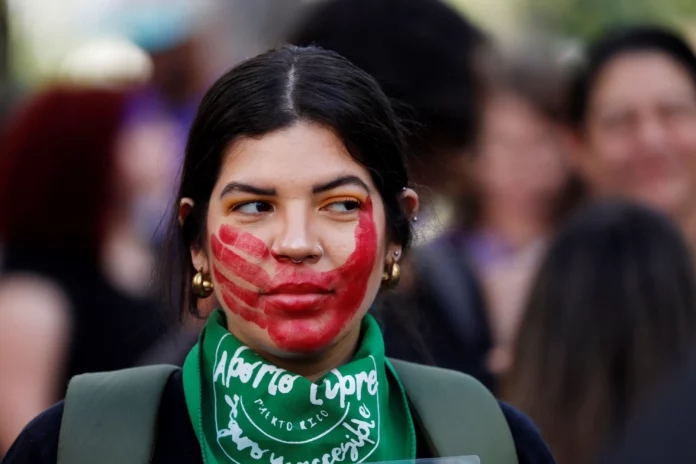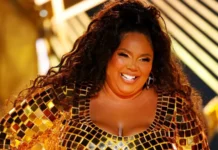Boricua Morena means a dark-skinned Puerto Rican woman. The word “Morena” is derived from the noun “morena,” which is commonly translated as “moray eel.” Similarly, the term “Boricua” is a noun that is frequently translated as “Puerto Rican.”
Boricua Morena Meaning?
Boricua Morena means a dark-skinned Puerto Rican woman.
What is morena skin tone?
Morena skin tone refers to a tanned brunette complexion, as defined in Spanish and Filipino languages. However, the experience of being a morena in the Philippines was not as enjoyable as the term may suggest. Having dark or brown skin was often challenging.
Similarly, Puerto Ricans have mixed ancestry. They are a blend of various ethnicities, including Indigenous Taino, Spanish, African, and other immigrant groups. The diverse heritage of Puerto Ricans contributes to their rich cultural identity.
What are Puerto Ricans mixed with?
Over time, the genetic heritage and cultural fabric of Puerto Rico underwent a transformative journey, shaped by the intricate intermingling of Spanish, African, and indigenous Taíno and Carib Indian lineages that coexisted on the island.
Presently, numerous Puerto Rican municipalities proudly preserve their ancestral Taíno names, exemplified by towns like Utuado, Mayagüez, and Caguas.
ALSO READ: 100+ BEST PUERTO RICAN TATTOO IDEAS THAT WILL BLOW YOUR MIND
What is Puerto Rican Spanish called?
- Puerto Rican Spanish, known as Español puertorriqueño, has undergone changes over time influenced by the island’s history.
- The term “Boricua” is commonly used to refer to “Puerto Rican” and is more prevalent than the term “puertorriqueño,” which carries the same meaning.
- The word “Boricua” finds its origins in the name the indigenous Taínos used to refer to the island known as Borinquén.
ALSO READ: What is The Correct Spelling of “Boriqua” – Meaning of Boriqua
What Does Boniqua Mean in Spanish?
Noun: A proud individual of Puerto Rican descent is often referred to as a “boricua.”
What hair color suits Filipinas best? Here are five blonde hair colors that look stunning on Filipinas:
- Honey Blonde: This shade falls between yellow gold and light brown, offering a warm and natural look.
- Ash Blonde: Unlike honey blonde, ash blonde is cool-toned and creates a contrasting effect.
- Buttery Blonde: A rich, creamy blonde shade that adds warmth and depth to Filipina features.
- Bronde: A combination of brown and blonde, bronde offers a natural-looking blend that suits many Filipinas.
- Platinum Blonde: This ultra-light shade creates a bold and striking look for those who want to make a statement.
Does Morena Mean Black?

- In Spanish, “morena” and “rubia” are used to describe hair color. However, this applies primarily to individuals of white ethnicity.
- I clarified that the term “morena” had a dual meaning. It could indicate either having brown hair or brown skin.
Taking Care of Morena Skin
- Incorporate regular exfoliation into your skincare routine for a vibrant and radiant complexion.
- Enhance the natural glow of morena skin by exfoliating it at least twice a week.
- Eliminate dullness and roughness by removing accumulated dead skin cells through exfoliation.
- Reveal a smoother and brighter skin surface by exfoliating your skin on a consistent basis.
- Exfoliation is key to revitalizing your skin and unveiling its natural radiance.
- Say goodbye to lackluster skin by exfoliating regularly and promoting a healthy glow.
- Give your skin a refreshing boost by exfoliating twice weekly and shedding away dead skin cells.
- Regular exfoliation is essential for maintaining a youthful and vibrant appearance.
- Uncover a more luminous complexion by incorporating exfoliation into your skincare regimen.
- Exfoliating your skin helps to rejuvenate it, leaving you with a revitalized and glowing complexion.
Why Do They Call Puerto Rican Boricua?
- “Boricua” refers to a Puerto Rican individual, denoting the local name for the people of Puerto Rico.
- The term originates from the island’s indigenous name, known as Boriken or Boriquín.
- The Boricuas have inhabited the island since ancient times, predating the Spanish colonization.
- The name carries the meaning of “Brave and noble Lord,” symbolizing courage and nobility.
What Does Boriken Mean?
The Taíno people, who were the region’s indigenous inhabitants, referred to the island as Boriken or Borinquen. This name held the meaning of “the great land of the valiant and noble Lord” or “land of the great lords.”
Even today, in various modified forms, this word is commonly used to identify both the people and the island of Puerto Rico.
Is Black Hair Good for Morena?
Typically, individuals with a Morena complexion possess naturally dark hair. While there is unquestionably an appeal to black shades, experimenting with a different color can infuse a sense of rejuvenation into your style.
Do Filipinos Have Brunette Hair?
The sole distinction lies in the varying levels of melanin present.
Another response to this query is that Filipinos possess a brown complexion due to prolonged exposure to the sun, resulting in a semi-permanent tan that darkens their naturally light brown skin to a medium or even dark brown shade.
Is Morena a Warm Tone?
- Understanding your skin tone: Discovering your skin tone can be helpful when choosing makeup and clothing that complement your complexion.
- Identifying cool undertones: Women with cool undertones typically have lighter, fairer skin.
- Recognizing warm undertones: Warm-toned individuals often possess skin with a golden, olive, or morena complexion.
What Does it Mean When a Guy Calls You Morena?
In terms of skin color, “Moreno” refers to someone with brown or dark skin.
For example, you would say, “That man has brown skin” as “Ese hombre es moreno,” or “That woman is brunette” as “Esa mujer es morena” since “morena” is the feminine form.
It is worth noting that “brunette” is generally used to describe females rather than males.
Is Morena a Term of Endearment?
- Morena/ita: Refers to a woman with brunette or dark skin.
- Rubia; Rubiecita: Describes a woman with blonde hair.
- Bebé: Represents a term used to refer to a baby, regardless of gender.
Key Takeaways
- Boricua Morena: Refers to a dark-skinned Puerto Rican woman.
- Morena skin tone: Describes a tanned brunette complexion in Spanish and Filipino cultures, although it can be challenging in the Philippines.
- Puerto Ricans’ mixed ancestry: Puerto Ricans have a blend of Indigenous Taino, Spanish, African, and other immigrant backgrounds.
- Puerto Rican Spanish: Puerto Rican Spanish, known as “Español puertorriqueño,” has been influenced by the island’s history.
- Boniqua in Spanish: There is no direct translation for “Boniqua” in Spanish.
- Hair colors for Filipinas: Honey Blonde, Ash Blonde, Buttery Blonde, Bronde, and Platinum Blonde are suitable hair colors for Filipinas.
- Morena and Rubia: In Spanish, “morena” and “rubia” are used to describe hair color, primarily in individuals of white ethnicity.
- Taking care of Morena skin: Regular exfoliation helps maintain a vibrant and radiant complexion for Morena skin.
- Boricua meaning: “Boricua” refers to a Puerto Rican individual and originates from the indigenous name for the island, Boriken or Boriquín.
- Boriken meaning: “Boriken” is the indigenous name for Puerto Rico, meaning “the great land of the valiant and noble Lord” or “land of the great lords.”
- Black hair for Morena: While individuals with Morena complexion typically have naturally dark hair, experimenting with different hair colors can add a sense of rejuvenation.
- Filipino hair color: Filipinos generally have naturally light brown hair due to varying levels of melanin and sun exposure.
- Morena as warm tone: Morena complexion is often associated with warm undertones, such as golden or olive tones.
- Guy calling you Morena: When a guy calls you Morena, it refers to your brown or dark skin complexion.
- Morena as a term of endearment: Morena/ita is a term used to describe a woman with brunette or dark skin, while Rubia/Rubiecita describes a woman with blonde hair. Bebé is a term used for a baby, regardless of gender.
ALSO READ:




